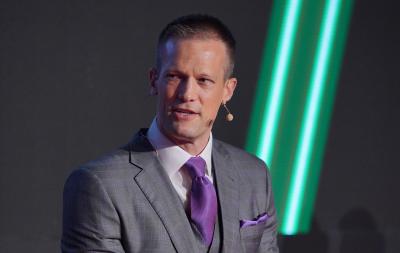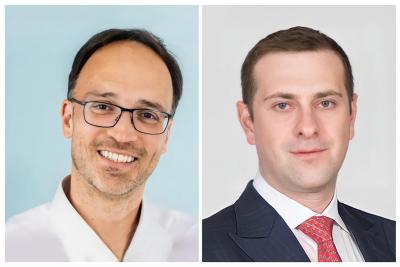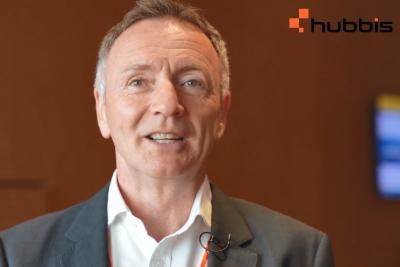Strategy & Practice Management
Islamic legacy planning – evolution or revolution?

Yann Mrazek of M/HQ
Feb 19, 2018
The typical GCC merchant family is facing many challenges to the maintenance, expansion and inter-generational transitioning of its wealth. Yann Mrazek, Managing Partner at UAE multi-services advisory firm M/HQ, and Chair of STEP Arabia, believes that the time has come to change outmoded mindsets.
“Are Middle Eastern merchant families ready to embrace the Islamic legacy revolution?” Mrazek asked the audience at the Hubbis Middle East Wealth Management Forum in Dubai on January 24. His answer was that investment behaviour and estate planning are still far from optimal.
“The typical behaviour and attitudes of the past are changing, with some gradual increase in investment outside the region,” he explained. “But nearly three-quarters remains in the region and the focus remains concentrated on only three asset classes, the family’s own business, real estate, cash or deposits.”
Mrazek noted that the financial services industry seems to be doing a less than excellent job of educating clients on the attractions of investing in other asset classes. “You might be shocked to learn that in the future according to surveys even more of this money – up to 90% of it – will flow into these same asset classes.”
A $1 trillion generational transfer
The sums at stake are vast. Mrazek explained that over the next 10 years, an estimated $1 trillion of assets is due to pass from one generation to another regionally, and that figure does not even factor in offshore assets. “Lots of wealth,” Mrazek added, “but such concentration also means lots of risk.”
He also highlighted some cultural and familial changes, for example, more marriages in other jurisdictions, different behaviour in the younger generations. While times are clearly changing and people from the GCC are spreading out further, their assets seem to become more concentrated. Moreover, the UAE economy is more open than ever before, implying greater competition for businesses.
“Barriers are coming down and there are ever more numerous challenges,” said Mrazek. “One of the biggest challenges is educational. A patriarch would start and run his own company, but are his children interested in helping grow that business? Are they capable of growing that business? And is there a legacy plan in place for the business and family assets?”
The risks of not planning
Mrazek answered some of the questions he posed with some statistics. “We know that only 20% of families have some sort of documented legacy plan in place, while for 40% are happy to rely on law – and by law, we mean local law, domestic law. That represents a major risk of dilution of these core assets, which are the epicentre of GCC wealth. An estimated 30% of families are not even yet thinking about estate planning at all.”
All this represents a wonderful opportunity for firms such as M/HQ. From both ADGM and Dubai, M/HQ offers a multi-services platform catering to a broad spectrum of clients in the UAE. “We offer a unique access to integrated corporate, tax and legal services,” Mrazek explained. “Whatever the complexity of the situation faced by our clients, we aim to provide them with simple, practical yet innovative solutions.”
Catering for change
With this broad range of expertise and experience, Mrazek knows that there is a lot of work to do in educating their clients, and then in helping them preserve that wealth by assisting with their legacy planning.
“The good news,” he noted, “is that we will find receptive clients: some 70% say they are receptive to thinking about these legacy matters and the tools to achieve their wealth transition goals.”
Mrazek then touched briefly on the tools to manage this wealth transition. For those with offshore assets, a trust or a foundation are likely to be compatible. For domestic assets, there are new tools being rolled out in the region. These include new SFO, trust and foundation regimes.
“My personal favourite,” he added, “is the foundation, which has many facets of a company, a legal structure, but it does not have shareholders, so it is not exposed to the principal or founder passing away. It can operate in perpetuity. Another item that is of paramount importance is that the principal can have control during his lifetime. It is an excellent tool to strengthen control over key assets, to prevent dilution and avoid family disputes.”
Whatever the tools employed for legacy planning, Mrazek noted that the fundamental key to the entire process is for individuals and families to embrace change. “We take immense pride in establishing strong and enduring relationships with our clients. This vital sector of estate planning is a key concern for the future of wealth in this region.”

Managing Partner at M/HQ

More from Yann Mrazek, M/HQ
Wealth Solutions & Wealth Planning
Wealth Advisory Services Expert Yann Mrazek Highlights the UAE’s Rising Global Prominence
Latest Articles






